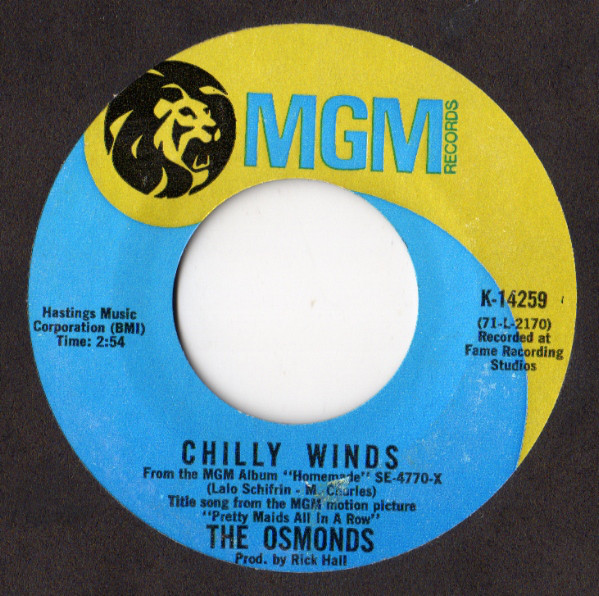
“Chilly Winds” (1971) – The Osmonds

an ever growing collection of short commentary on memorable tracks

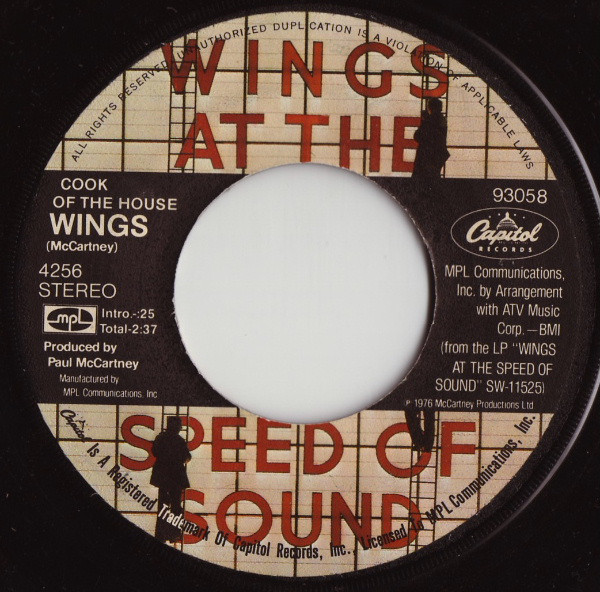
“Cook of the House” – Wings (1976) * Written by Linda McCartney and Paul McCartney * Produced by Paul McCartney *45: “Silly Love Songs” / “Cook of the House” * LP: Wings at the Speed of Sound * Label: Capitol
“Cook of the House,” featuring Linda McCartney’s best known vocal, appeared on the B-side for “Silly Love Songs,” the track that served as a cheerful anthem for the summer of ’76 and whose overuse as an analogy for rock’s death (or just Paul’s) became more tiresome than its saturated airplay. “Cook of the House” crackles with rock ‘n’ roll flipside-ology, only to be thrown out at your own ignorant accord. It brings to mind Rosie and the Originals’ 1960 “Give Me Love” (the B-side of “Angel Baby”), which John Lennon adored and was likely a Beatle inner-circle favorite. The sound of cooking grease comes off as scratchy vinyl; Linda sings instead of Paul, just as one of the Originals, on “Give Me Love,” sang lead instead of Rosie; a tenor sax honks aimlessly; the drums sound like sofa cushions. What does Paul sing at the beginning? Why are there voices of affirmation after he sings what he does? What is Linda saying in the verses? Not clear at all. How many consumers spun the 45 and relished the muffled, thumpy sound they heard? Untold numbers. Read some of the words most any critic has written about “Cook of the House,” though, and you’ll see why she recorded a song (on her posthumous Wide Prairie compilation) about “stupid dicks.” (Extracted/adapted from a longer post on Wide Prairie at Boneyard Media.)

“Open Your Heart” (1981) – The Human League * Written by Jo Callis and Phillip Oakey * Produced by Martin Rushent and the Human League * 45: “Open Your Heart” / “Non-Stop” * LP: Dare * Label: Virgin * Charts: UK #6
The Human League’s commercial breakthrough in 1981 showcased a simplicity vs. complexity dialectic in new British synth pop. Producer Martin Rushent, having programmed the intricate chain of sequences on “Open Your Heart,” would surely laugh if anyone were to inquire about the track’s scaled down nature. The final product, though — including the white-background cover art, the one-word album title, the button-tapped electronics — argued for minimalism, dehumanization, emotional restraint. “Open Your Heart,” in fact, pushes so far in that direction that it breaks down one of those white studio walls to reveal a pastoral conception of minimalism. A Casio VL-Tone, that most portable of early synthesizers, plays the melodic hook on the “flute” setting, as though emanating from under a shepherd’s shade tree. For three 1981 singles, the band experimented with a Red and Blue labeling system, which they described self-effacingly in the New Musical Express as a way of differentiating between their “Spandy” [Spandau Ballet] or “Abba” offerings (i.e., dance or pop). “Open Your Heart” clearly qualified as Blue/Abba, whose 1980 song “The Piper”—the B-side for their UK #1 “Super Trouper” — also used a synth flute and evoked pre-industrial age airs.

“Duel at Diablo (Main Title)” (1966) – Neal Hefti * Written by Neal Hefti * LP: Duel at Diablo: Original Motion Picture Score * Label: United Artists
By 1966, the trumpeter and arranger Neal Hefti, having made a name for himself with Count Basie and Frank Sinatra, shifted his focus to film and TV scoring. Although his themes for The Odd Couple (1968) and Batman (1966) are his most enduring, other ones paired with lesser-known projects would nonetheless sport a certain trademark heft, shall we say. The Duel at Diablo theme is one of these, catchy and finger-snappy enough to work as a TV jingle. Instead, it accompanied one of the era’s more distinctly violent and emotionally complicated westerns. Based on Marvin H. Albert’s 1957 novel Apache Rising and featuring James Garner in perhaps his most sullen role, it grappled with the grim and messy reality of US/Indian relations and offered the viewer, whom it wore down with its relentless fighting and high body count, no convenient outs. When the snazzy theme kicks in for the closing credits, it feels like a tone-deaf maneuver, if not intended as outright mockery. What’s up with you? the peppy theme asks. It’s only a movie. (Duel at Diablo‘s opening sequence plays on a TV during Brian DePalma’s Carrie (1976), giving Hefti’s theme an opportunity to do double-mockery duty.)
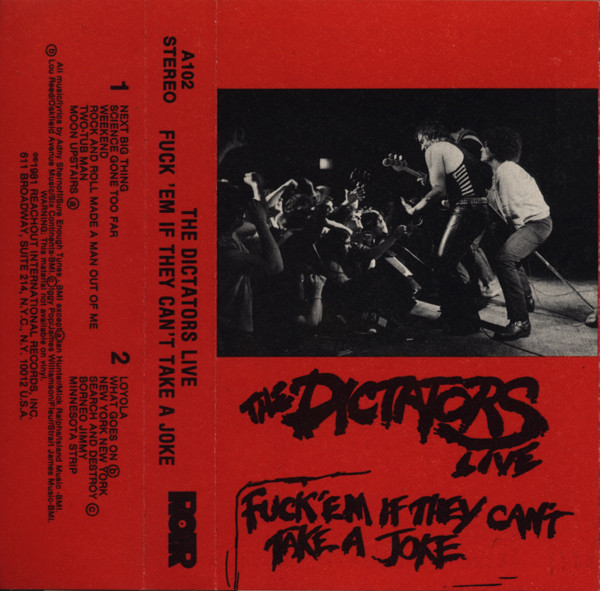
“New York, New York” (1981) – The Dictators * Written by Adny Shernoff * Cassette: Fuck ‘Em If They Can’t Take a Joke * Label: ROIR
The Dictators, above every other categorization (proto-punks, hard rockers), were New Yorkers. Part of the fun of their debut album Go Girl Crazy (1975) was hearing vocalist Handsome Dick Manitoba, who wore the same kind of afro as the MC5’s Rob Tyner, doing renditions of California-centric material (“California Sun,” “I Got You Babe,” “Cars and Girls”) in his unmistakably Bronx manner. (Manitoba joined the reformed MC5 as the obvious frontman to replace the deceased Tyner when they reformed in 2005.) But those tracks had the whiff of escape fantasies. Their next two albums, Manifest Destiny (1977) and Bloodbrothers (1978) betrayed a few too many commercial intentions that made them seem vulnerable in a way that betrayed their band name. The chosen title of their 1981 live cassette on the NYC-based ROIR label, Fuck ’em If They Can’t Take a Joke, may as well be understood as their explanation for any previously perceived weaknesses, because it’s their best album. It’s got most of the best tunes from the other releases and includes their crucial “New York, New York,” which is, unlike the Sinatra signature tune, a dispatch from Fear City (a term used in a 1975 union pamphlet to scare off tourists). The song tells of garbage in the streets, dirty air, and fellow citizens worthy of only derogatory names, with an insistent and staccato melody that could, in some other guise, do intro duty for a news hour or movie-of-the-week on WNEW (channel 5). The Fleshtones, also intrinsically New York, do a cover of it as the sole keeper track on the 1996 Dictators Forever Forever Dictators tribute album. On the 1981 source version, though, you get to hear Manitoba close the track by yelling, “you talkin’ to me?!”

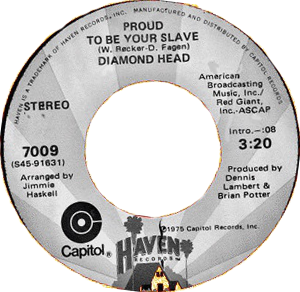
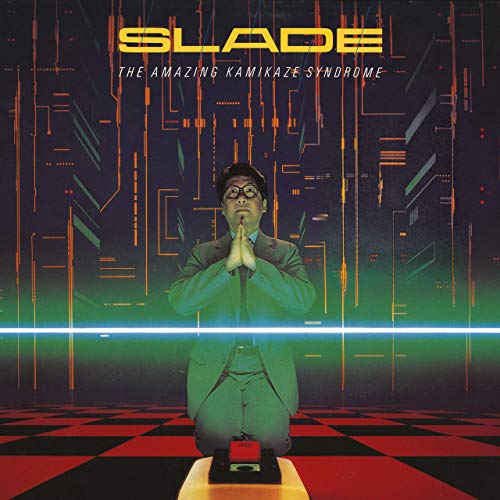
“Run Runaway” – Slade (1983) * Written by Noddy Holder and Jim Lea * Produced by John Punter * B-side: “Two Track Stereo One Track Mind” (UK); “Don’t Tame a Hurricane” (US) * LP: The Amazing Kamikaze Syndrome (UK); Keep Your Hands Off My Power Supply (US) * Label: RCA (UK); Epic/CBS (US) * Charts: Billboard Hot 100 (#20); UK #7.
England’s Slade, the early ’70s glam-stomp hitmakers with merely a cult following in the US, found renewed momentum as elder statesmen thanks to festival gigs in the New Wave of British Heavy Metal early ’80s. They were thus all warmed up to capitalize when the American metal band Quiet Riot turned their “Cum On Feel the Noize” into a top 5 US hit in August 1983. Smartly, Slade got some new material ready, and by April 1984, a track called “Run Runaway” became their biggest stateside hit, peaking at number 20. In context, the key line “see chameleon lying there in the sun / all things to everyone” points to the track’s crossover appeal in a cliquish market—American Top 40, AOR, and alternative rock stations all embraced the tune (whose guitar lines nodded to the bagpipe rock sound of Big Country). “Run Runaway” also tapped into cozy subconscious memories of a protestant hymn called “There Is a Happy Land” (its opening words: “There is a happy land far, far away”), whose third line melody parallels the third line of Slade’s hit. The track appeared on a late 1983 British release called The Amazing Kamikaze Syndrome, shaken free of cultural stereotypes in 1984 with a new cover and title for American release (Keep Your Hands Off My Power Supply).
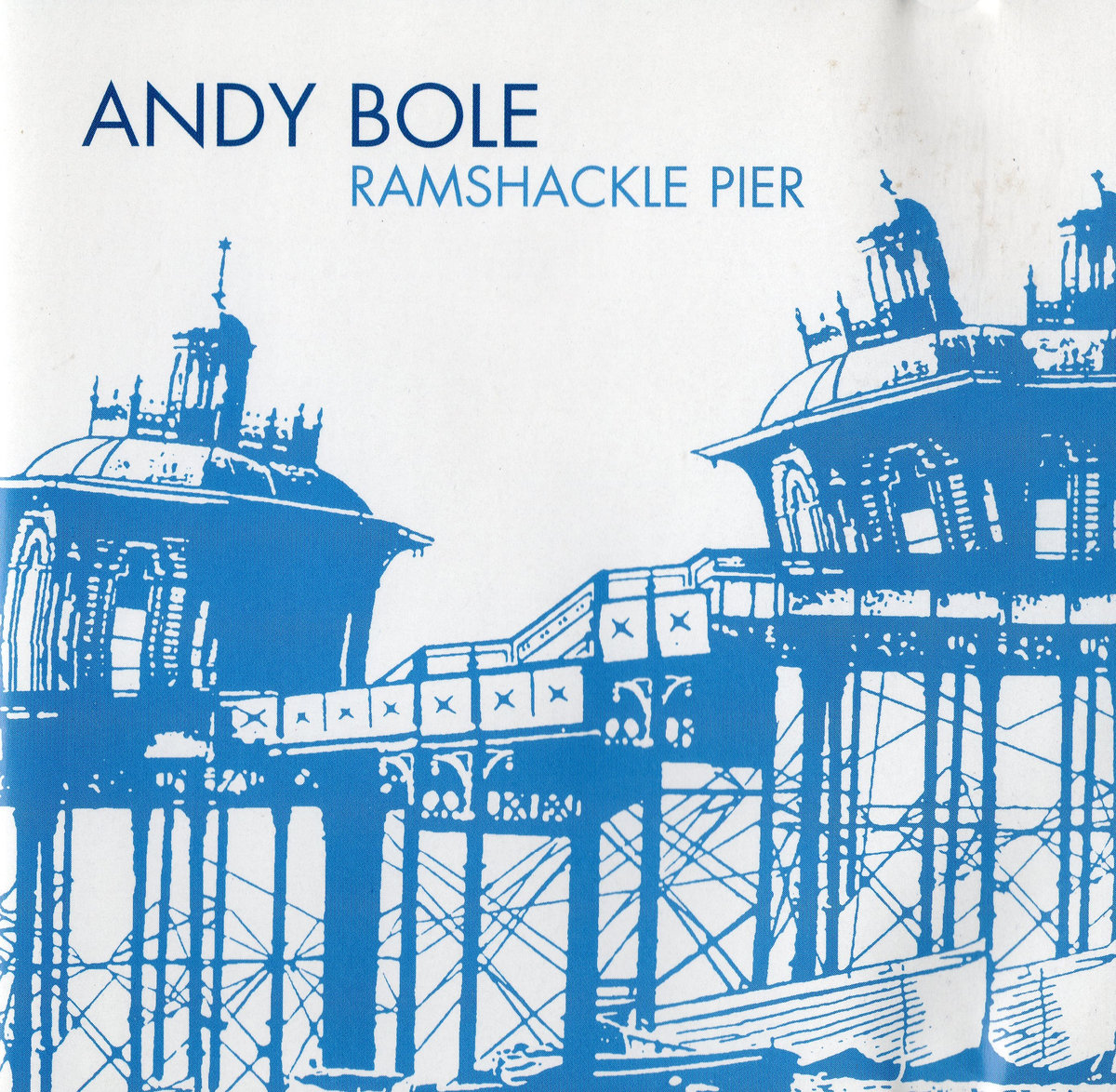
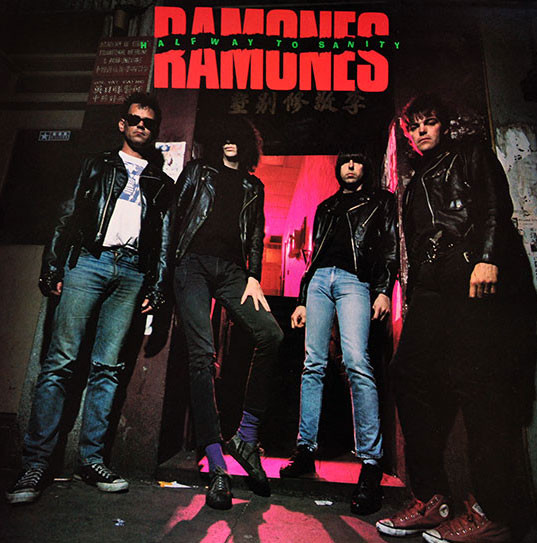
“Go Lil’ Camaro Go” (1987) – Ramones * Written by Dee Dee Ramone * Produced by Daniel Rey and Dee Dee Ramone * LP: Halfway to Sanity * Label: Beggars Banquet
The Ramones and car songs are among America’s greatest exports. “Go Lil’ Camaro Go,” from 1987 — one of the Ramones’ less celebrated eras — is a merger of those two products. Debbie Harry’s vocal contribution reminds us that upper-register female voices in the car crash records of the early sixties signified angels warning of impending tragedy. Songwriter Dee Dee (not to be confused with the Dee Dee of Dick and Dee Dee) also installs a set of healthy “papa oom mow mows,” knowing that all songs with such machinery turn into classics.